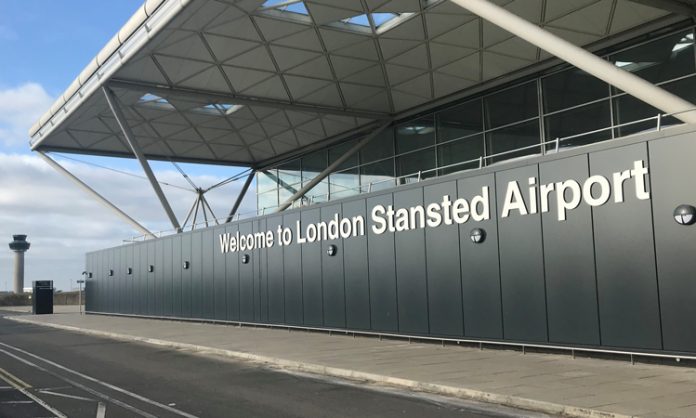After passenger numbers at the three airports fell by 90 percent from March 2020 to March 2021, MAG has called for an urgent path to resume international travel.
Credit: London Stansted Airport
Planning a path to unrestricted travel is key to fully revitalizing the ailing UK aviation sector. This was the message from Manchester Airports Group (MAG) as the UK’s largest airport group revealed figures showing passenger numbers fell by 90 percent in the first 12 months of the coronavirus pandemic.
Such a roadmap should be based on increased collaboration between the UK government and its overseas counterparts to share information on the emergence of new worrisome variants of COVID-19 and avoid the need for travelers to have expensive PCR tests on their return.
Currently, the UK government is proposing that all passengers – including those returning from the lowest risk “green” destinations – must do a PCR test upon return to collect data that will help with genome sequencing. MAG said this could be avoided if governments worked together on sequencing and sharing data on variants.
The test requirement is part of the Global Travel Taskforce (GTT) traffic light framework, which ranks countries as red, amber, or green based on the risk associated with their visit. Subject to final confirmation, it is scheduled to come into play on May 17, 2021, the earliest date the government has stated that non-essential travel can resume.
Manchester Airports Group – owners of Manchester Airport (MAN), London Stansted Airport (STN) and East Midlands Airport (EMA) – said the framework should be improved urgently to include a fourth, non-constraint category, that of Success of the airport benefits the UK’s leading global vaccination program. This would save passengers significant personal expenses and give the UK aviation sector the much-needed confidence ahead of a critical summer season.
The dramatic downturn in aviation was evident in MAG’s annual passenger numbers, which showed that MAG served 93 percent fewer passengers in March 2021, compared to March 2020, and that its rolling 12-month passenger count was down 89 percent. In March 2020, MAG served more than four million passengers compared to March 2021 when 140,000 passengers were carried – a decrease of 97 percent.
Manchester Airport carried just 95,798 passengers in March 2021, 89.8 percent fewer than the 942,900 it had handled 12 months earlier in March 2020. Stansted was 44,259 in March 2021, compared to over 800,000 in March 2020 – a 95 percent drop. East Midlands Airport handled just 71 passengers in all of March 2021, up from 106,529 in 2020. In March 2019, MAG’s 12-month passenger count was nearly 62 million, compared to just over six million in March 2021 – um a total of 90 percent decreased.
Charlie Cornish, CEO of Manchester Airports Group, said: “The UK government was one of the first to put forward a system to allow international travel to resume and should be welcomed for taking the lead. After more than a year of near-complete closure – and with so many jobs and so much economic value – it’s really important that we get people moving again as soon as it is safe to do so. We now need the government to confirm the start date on May 17, 2021 as soon as possible, along with the list of countries that fall into each traffic light category. “
Under the traffic light system, those returning from Green List countries must take a pre-departure test and another PCR test within two days of their return. Those returning from amber list countries will need to self-isolate for 10 days and do an additional PCR test, while those returning from red list countries will need to book a government-approved hotel quarantine package.
Cornish added, “The price of testing will put a brake on the recovery and affect the sector’s ability to drive the UK’s economy as a whole. The need to have a PCR test on return from even the safest of countries may create unnecessary costs and the government must now focus on finding smarter, cheaper ways to manage the risk posed by new problem areas. “
“This should be achieved by forging ever closer partnerships with key markets and developing transparent methods for exchanging data in these variants so that these can be effectively contained. If we can trust data from other countries and force people to spend money on expensive PCR tests to get the same information, it would be a colossal waste of everyone’s money, ”he continued.
Cornish concluded, “COVID-19 is a global problem and requires a coordinated international response not just to get the pandemic under control, but to develop solutions that enable a return to restriction-free travel between lower risk countries. The government should also consider the UK’s leading global immunization program to remove other barriers to getting to as many destinations as possible. Only if we now embark on a path back to unrestricted travel will the aviation industry be on its way to a full recovery and unlock the wider economic benefits that it will bring. “




